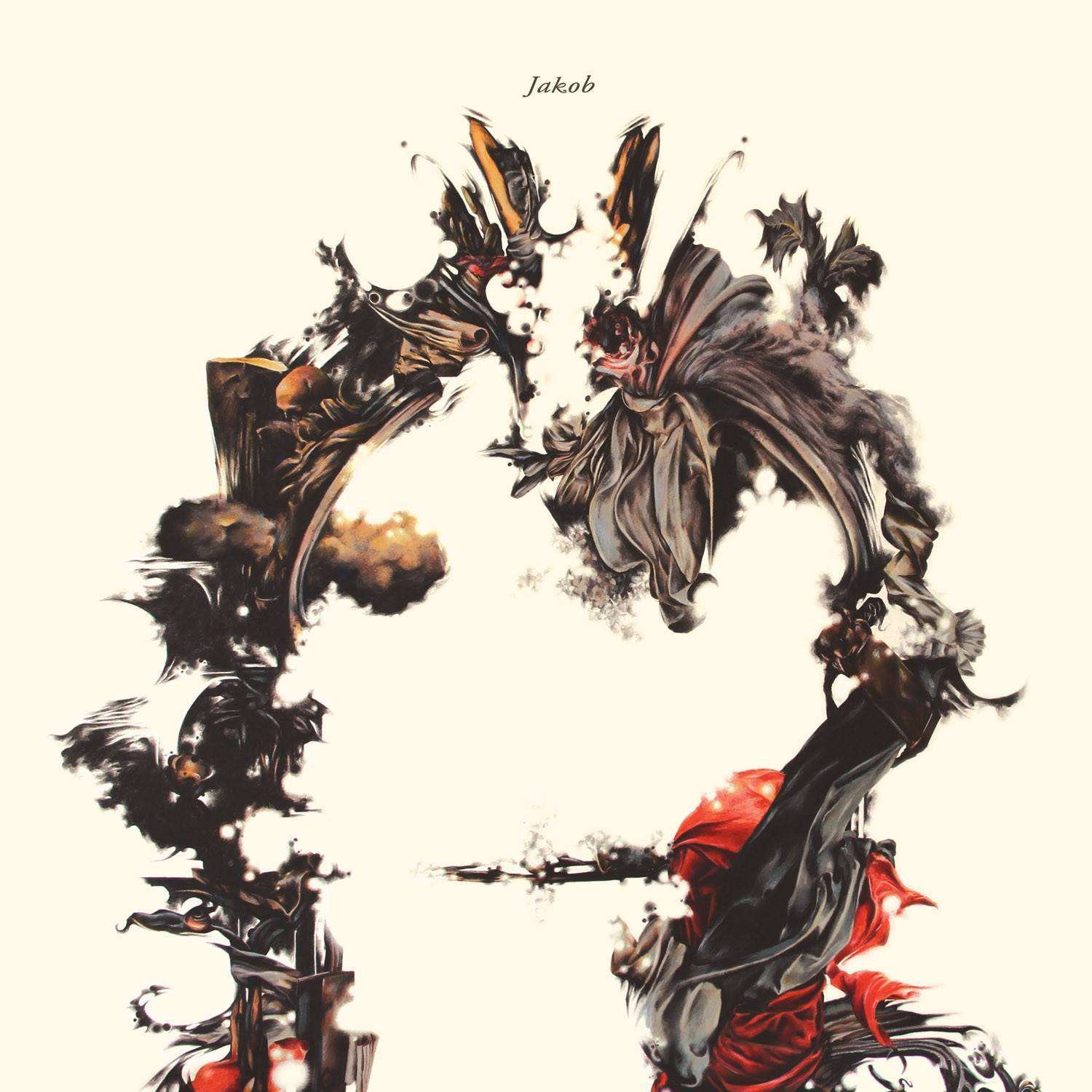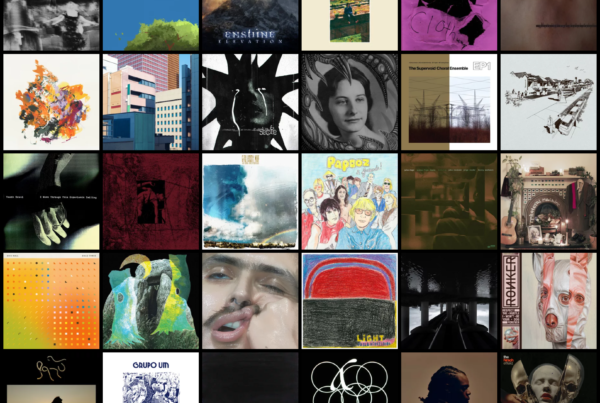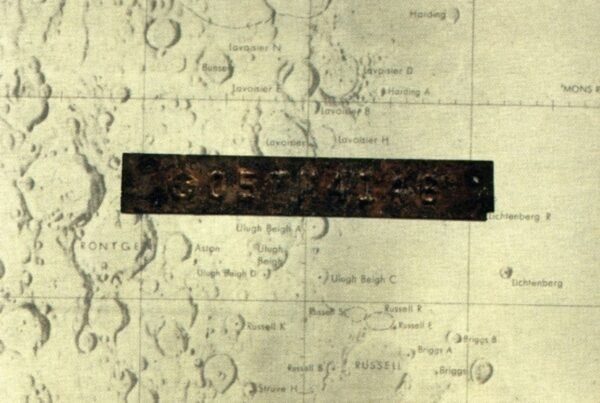
Release date: October 21, 2014 | The Mylene Sheath | Bandcamp | Facebook | Instagram | Website
Crescendocore killed a lot of my excitement for post-rock. Where previously, bands in the genre were pushing boundaries in terms of atmosphere, experimentation, and sheer noise output, later post-rock bands focused more on the crashing highs than the satisfying build-up feeding it. Luckily there were always bands like New Zealand trio Jakob, who crafted more than juicy punchlines with their music. 2014’s Sines is the perfect example for their craft.
Toni Meese
About 9 years ago (fuck, 9 years ago) some friends and I decided to go to one of the best venues in town (and an old theater/cinema where I saw amazing shows by Amenra, Sunn O))), Neurosis, Bell Witch, Yob, but also countless other acts outside the doom/post metal realm like Hiatus Kaiyote or Mouse On The Keys) to see a post rock show. We didn’t really know the band, we were just in the mood for a show, and going to said venue was always a treat. Little did we know how much that night would affect our musical identity.
I don’t really remember the support bands. While I was checking them out, nothing really memorable happened. Afterwards, the metaphorical curtain was lifted to reveal the main act, New Zealand post rockers Jakob, and what happened next was nothing short of an out-of-body experience. To this day, seeing this band in this venue is one of the most intense musical experiences I’ve ever had. Period. Unconsciously, I moved closer and closer to the stage until I was in the front row with my eyes and soul wide open. The music washed over me in massive tidal waves, relentless, yet tender and healing. It was such an organic (it took me a while to actually write “organic” as I Freudianly slipped into writing “orgasmic” a few times) and fantastic experience, and to this day my friends and I remember that night fondly.
After that, I devoured Jakob‘s discography like a desert nomad gulping down a glass of water. I was infatuated with their music, to say the least, and while I enjoyed all of their albums, their last album, Sines, was the one that stuck with me the most – maybe because it was the one that was most represented when they were on stage. I can’t really tell you what my relationship to this band and this album would be like if I hadn’t seen that show – I probably wouldn’t be praising them over the moon to this day. I probably wouldn’t call Sines the best post rock album of all time either, but here we are.
On paper, there’s nothing special about Sines – it’s a swelling, richly textured post rock record with a little post metal thrown in here and there. It clearly follows the formula of the genre, but what the trio does with that formula is so much more than the sum of its parts. What really resonated with me, probably because of the circumstances of how I was first introduced to the band, was the feeling of being in the room with Jakob live. Sines sounds incredibly organic and alive. It feels alive. And while it has some free-flowing vibes, it’s never random. On the contrary, it’s masterfully composed, with massively crushing riffs and drums that, while not front and center in the mix, are full of drive and pulse. Maybe it’s the rudimentary take they have on their genre. Maybe it’s the strong sense of meaning that radiates from every second of this album, in an ocean of genre that often suffers from irrelevant randomness.
So when I say this is the best post rock album of all time, take my experience into consideration. That doesn’t mean it can’t be true for you.
Eeli Helin
The New Zealand based post-rock outfit Jakob are the kind of band who bears a tremendous significance to a lot of people – even an entire scene – yet somehow they’ve always flown under the radar in certain terms, and their name is often left unspoken in discussions where they’d very much belong to, regardless of how influential they are. Truth be told, personal perspective probably plays into this somewhat, and I’m also one of those who hopped on board of the trio’s sonic train relatively late, only a few years or so ago, via a recommendation by a friend. One thing that I like about being late to this kind of party, though, is that more often than not there’s quite a bit of material to dig into and enjoy, and I really like the additional depth and certain type of career spanning overview one can attain only through this type of discovery.
Sines is the trio’s most recent album to date, actually released a decade ago, and it’s also the first one I heard from them, so it’s the one that holds the most value for me. Having no prior knowledge of Jakob or who they are, I remember very vividly how I had to immediately stop what I was doing and just let my soul wander into the beautiful sonic wilderness that unfolded in front of me for the next 45 minutes. I’m sure you know the kind of reaction I’m talking about, and I’m sure you know how that leaves an impression on your psyche.
The opening track “Blind Them With Science” not only explains a whole important agenda in four words, but also matches this grandiosity musically. It slowly seeps in, gains weight and swallows you whole. Personally, I’m not a “regular listener” of anything, but I see music for its value and always try to reserve the time and space to fully concentrate on something, even though taking care of some mundane tasks has proven to be a psychologically relaxing thing lately. However, some things are too immersive to allow for any extra meandering, and that kind of output has always spoken to me on a very deep level, whether musically or otherwise artistically, and Jakob are a good example of an act that will take you with them for as long as it takes, and you don’t mind.
Post-rock as a concept has always felt like a home to me, giving me room to live and breathe in spaces and situations where there are none, and part of that has to do with the juxtapositions and contrasts it usually uses as a baseline for everything. It’s no different on Sines, where the opposite ends of the spectrum are explored in equal measure to create a vibrant and adventurous whole. Even though the heavier aspects rely more on emotional heaviness, there’s still plenty of the more familiar idea of it, like on the aforementioned opener or “Magna Carta”, which along with the droning title track and “Resolve” – one of the most beautiful songs known to mankind – gives the album its prominence.
The concept of a wall of sound is often ingrained in extreme music and distortion, but Jakob and Sines are a perfect example of how this idea can be used in a different way than perhaps the genre’s usual way, and the end result is more like a solid swath of sound that doesn’t pale in comparison, but flourishes in its own way to a somewhat similar effect. Jakob has been weaving this enveloping sonic tapestry for nearly three decades now, and with the promise of new material in the immediate horizon, it just feels like a pretty good idea to take this album – and why not their entire discography – for another leisurely spin. You should do the same.





